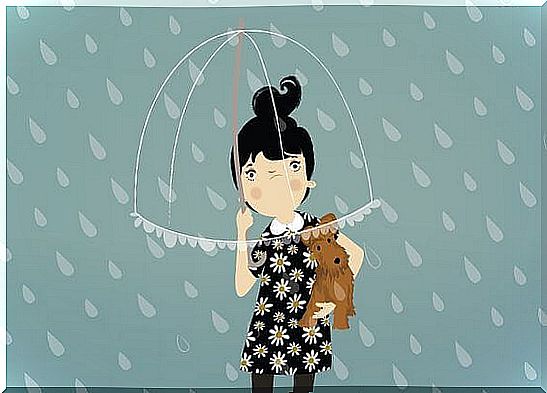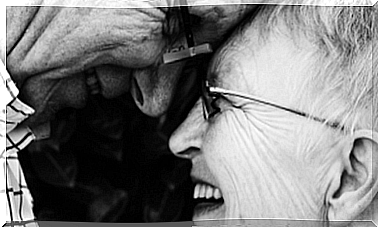Intolerance: When We Don’t Put Ourselves In The Shoes Of Others

A touch of hands, eyes that meet or a sentence can make us mad depending on who we are in front of. Intolerance is a current problem that pushes us to not bear contact with others, which can hinder and worsen our relationships.
There is a very fine line between tolerance and intolerance. We seem to have become less and less patient or kind to others, we struggle to put ourselves in their shoes and we don’t understand that competition leads nowhere.
What is your degree of intolerance?
We assume that we are all or have been intolerant, perhaps because we had a bad day or because tolerance is not part of our values. We analyze everyday situations, which specifically reflect our degree of acceptance or denial towards others.
For example, if we walk down the street and bump into a person who is looking at the phone, if on the subway we sit next to someone who practically sneezes in our face or if in the restaurant a diner makes noise while eating soup … we could seriously get nervous and angry.

But there is more: if a work colleague drags his feet when he walks or a friend makes a lot of noise in heels, if the partner or a friend gets distracted when we tell him something important or if he “touches us” at the cinema a neighbor who constantly comments on the film, it is not strange that smoke starts to come out of our ears!
Why do these situations trigger our intolerance? People yelling on the bus, talking with their mouths full of food, or listening to music without earphones on the street shouldn’t be reason enough to unleash our anger.
Symptoms of intolerance
If you usually get angry about one of the situations we have described to you, you need to think about the reason for your frustration. Realize that when you get angry in this way, it is you who suffer twice, one because of the perceived offense and the other because you have to endure your own anger.
Think that you are not alone in this world (fortunately) and that anyone around you can do what they like best. Maybe you think “okay, go ahead, but don’t bother me!”.
So, the second step is to understand why it bothers you. The person next to you at the cinema who comments on everything may be just looking for an excuse to talk to someone who has the same passion for movies as you; the young woman who sneezes in the subway did it without realizing it and certainly not with the intention of making you sick; the one who eats soup making noise in the restaurant perhaps only knows this way to eat it; your friend who wears heels may not think they make so much noise …
It is not that everyone is against you and therefore chooses to behave in a certain way to annoy you or disturb your peace of mind. It is you who get upset with them because you think they do it on purpose, that they have no respect for those around them or that they have agreed to ruin your day … Nothing further from reality!
We all have our particularities, our obsessions that at a given moment can be annoying and for which we ask for understanding. The fact is that, being our obsessions, they don’t bother us.
How to reduce intolerance?
In this sense, tolerance is not only respect for freedom of expression or religion, but also for the peculiar characteristics of others without them bothering us. Tolerance involves self-control, patience, and emotional re-education.

On the other hand, the fact of living in a society that is becoming more and more intolerant, even though it claims to support diversity, does not mean that we must adapt to this current of antipathy towards the peculiarities of daily life, towards the people who they are around. It’s sad, but certainly no one teaches us to be tolerant.
This poorly practiced and trained ability is seen as a weakness. That is to say, if we preach tolerance, they label us “spineless” or “submissive”. On the contrary, contempt, lack of understanding and always thinking of oneself seem to be the characteristics of the good citizen.
An attitude against intolerance is fundamental and for it to become a habit you need a lot of patience. Yes, the one we easily lose if someone makes a “mistake” against us.
For this reason, we propose that you count to 10 and not be dominated by anger the next time someone sits next to you on the bus even if there are other vacant seats or when someone sends you a message full of errors. spelling or smokes near you.
With a calm mind, you will understand that no one is against you or wants to ruin your day. People just live their lives.









